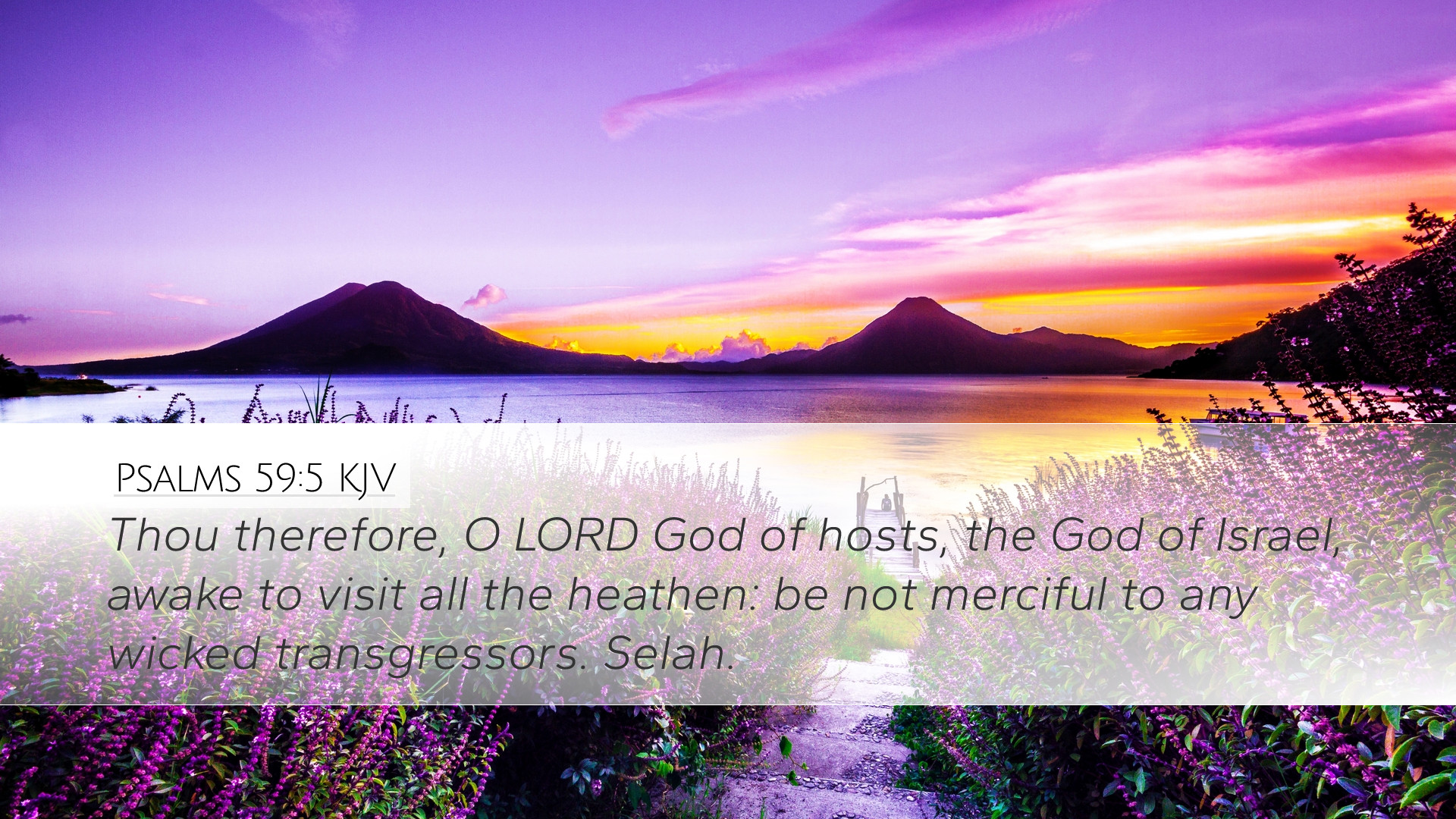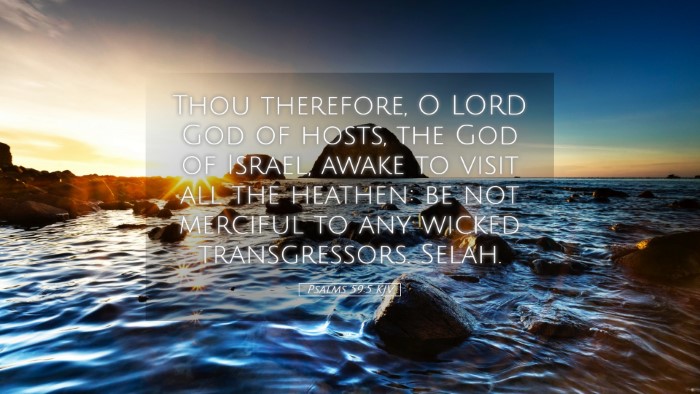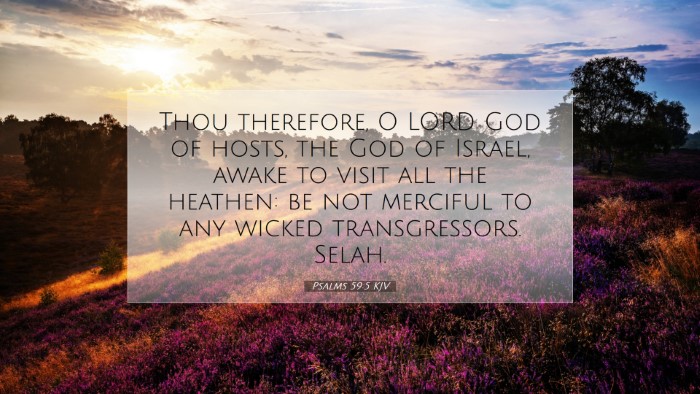Commentary on Psalms 59:5
Psalms 59:5 states, "O Lord God of hosts, the God of Israel, awaken to punish all the nations; do not be gracious to any wicked transgressors." This verse, steeped in the context of David's plea for deliverance from his enemies, offers profound insights into God's character, divine justice, and the nature of wickedness. Through the lens of respected commentaries, we glean various aspects of this powerful passage.
Context and Background
Psalm 59 is attributed to David, written during a time of intense persecution. The historical context is critical; David was facing the threats of Saul who sent men to ambush him at his home (1 Samuel 19:11). This desperate situation sets the stage for David's cries for divine intervention.
Matthew Henry emphasizes the urgent tone of David’s cry, noting that the psalm transitions from personal lament to a broader appeal for justice against all nations plotting evil. Henry articulates that it showcases David's understanding of his humble status as God’s anointed while simultaneously calling for God's sovereign power to act against wickedness.
Theological Insights
-
God’s Sovereignty:
David invokes the title "God of hosts," which signifies His ultimate sovereignty over all creation. Albert Barnes reflects on this title as an acknowledgment of God’s authority over all armies, both heavenly and earthly. This highlights a key theological principle: that God is in control, even amid chaos and uprising against Him and His people.
-
The Nature of God:
The phrase "God of Israel" implies a specific relationship and covenant between God and His people. Adam Clarke elaborates on this by noting that David appeals to God's faithfulness to His covenant rather than a mere generic call for help. This shows that God’s character as a covenant-keeping God is fundamental to understanding His actions in history.
-
Justice and Retribution:
David’s cry for justice—"awaken to punish all the nations"—portrays a deep desire for divine retribution against the wicked. Matthew Henry comments on the need for God’s judgment on entities contrary to His ways. This serves as a reminder that while God is gracious, He does not overlook wickedness. The cry for justice underlines God's ultimate authority over morality and the retributive aspect of His nature.
-
The Role of Wickedness:
The reference to "wicked transgressors" underscores an understanding of human depravity and rebellion. Albert Barnes states that this contrast serves to highlight the righteousness of God in opposition to human sinfulness. This duality is important for theological reflection on sin and how it affects the relationship between humanity and God.
Prayer and Lamentation
David’s prayer embodies the heart of lamentation—calling upon God not only for personal deliverance but also an acknowledgment of collective wrongdoing. This personal and communal aspect is critical for both ancient and modern readers. Clarke notes that prayer in lamentation should involve recognizing God's holiness and a desperate plea for Him to ‘arise’ against sin, both personal and societal.
Application for Today
-
Encouragement in Trials:
Pastors and theologians can draw from this text the importance of bringing one’s struggles before God. It affirms that amidst persecution or distress, believers are encouraged to seek God earnestly, as David did.
-
The Call for Justice:
In a world full of injustice, this psalm invites believers to uphold a desire for righteousness. Advocating for justice in society, as David did, aligns with a Christian’s responsibility to address moral failings. The sentiment of this verse resonates well with contemporary issues of social justice, thereby nurturing a collective faith response.
-
Understanding Divine Grace:
While David calls for punishment, it is imperative to balance this with the understanding of God’s grace. Reflecting on God’s willingness to forgive those who repent should encourage humility and an earnest pursuit of godliness among believers.
Conclusion
Psalms 59:5 serves as a poignant reminder of the complexities of leadership, faith, and the quest for divine justice. As pastors preach from this text, students reflect upon it, and theologians explore its depths, the lessons drawn from David’s plea offer timeless wisdom on engaging with God in prayer, the nature of justice, and the remembrance of God's sovereignty in trials. In calling upon the "God of hosts," believers are reminded to trust in the ultimate authority of a God who is both just and merciful.


